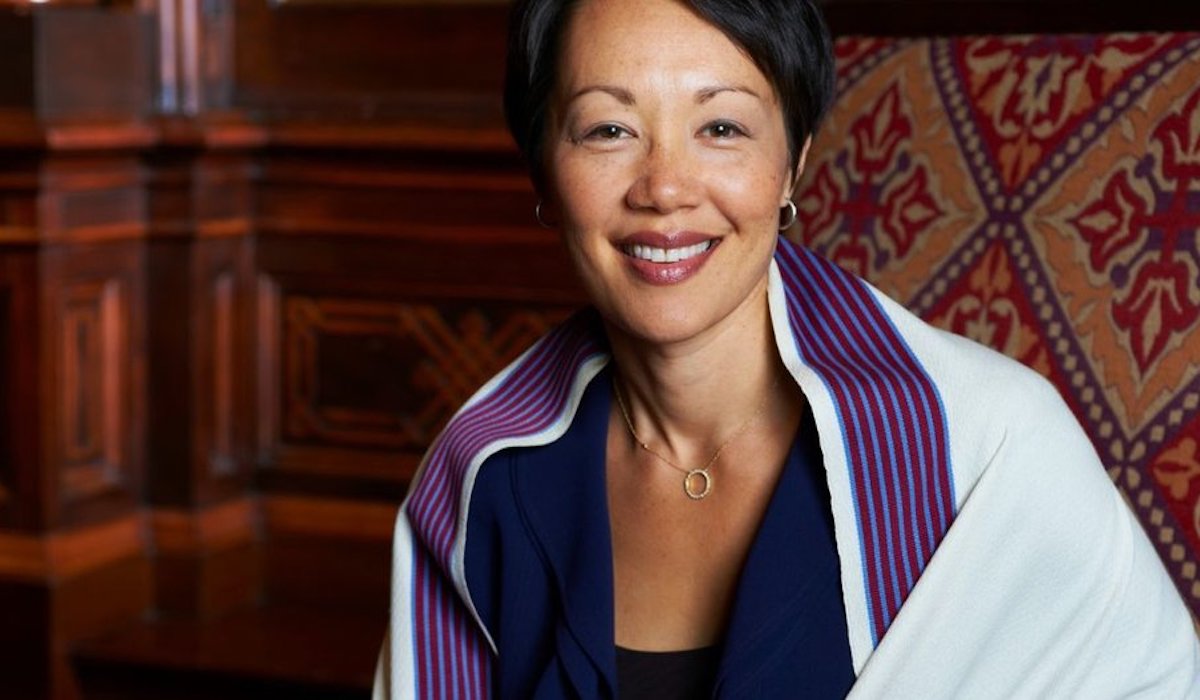We Too Were the Stranger

My mother is Korean Buddhist and my father a Jewish American.
I was born in Seoul, immigrated to America at age five, became ordained as the first Asian-American rabbi in 2001, and currently serve as the Senior Rabbi of Central Synagogue, an historic, flagship Reform congregation in Manhattan.
Mine is a story that could only have happened in America. But recently I have been thinking about the sacrifices my mother made to allow me to realize this unlikely dream.
Yi Sulja, my Korean mother, became a naturalized citizen before she immigrated to this country at the age of 35, with two biracial daughters in tow.
But even with citizenship, she wasn’t exactly made to feel at home here. Though she had a master’s degree, she found it nearly impossible to get a job. With her strong accent, she was constantly spoken down to, or treated as ignorant. Children would imitate slanty eyes behind her back. Or to my face. And I will never forget when a man with road rage yelled at my mother: “Go back to your country!”
But America is her country.
And being American is something she is deeply proud of.
But like so many Asian Americans today, she is still made to feel like a stranger in her own home. And now for the first time I have to worry when my strong —but tiny — mother goes outside for a walk alone.
The recent surge in anti-Asian violence is a horrific reminder that when people are seen as the Stranger, the Other, it leads to dehumanization, to harassment and even violence. Taunts like, “Take your China virus back to your own country,” can lead to devastating consequences.
As people of faith, as people of good conscience everywhere, our spiritual imperative goes beyond just speaking against hate.
Or speaking up for those who are vulnerable.
God also wants us to listen deeply. To empathize.
To understand that the fate of the Stranger is inextricably tied to our own.
This past fall, my 18-year-old son spent three months living in South Korea. It was his first extended time living outside New York City. He spent his first 14-days in quarantine in a 9×12 foot motel room and emerged onto the streets of Seoul just hours before the start of Rosh Hashanah, the Jewish New Year.
He spent a portion of the holiday with a tiny progressive Jewish community, and some time at a Chabad in Seoul. But mostly he was entirely by himself.
He called me afterwards and said, “Mom, in some ways this was my least Jewish High Holidays. I wasn’t with family, I didn’t go to all the services. There are so few Jews here. But in another way, I’ve never felt more Jewish in my life.”
I asked him to say more.
He responded: “Now, I really understand what it feels like to be a stranger.”
Well. If that is the only thing my son took from a decade of Jewish education, Dayenu! as we say– it would be enough.
In the coming days, as some neighbors celebrate Easter and others begin Ramadan, the Jewish community will be celebrating Passover, our most important holiday of freedom.
The religious mandate of this holiday is to remember what it was like to be a stranger.
We were once slaves, but we know that freedom is possible.
We tasted the bitterness of oppression and so we know what it feels like when others swallow the same bitterness.
We were once persecuted, and so we’re called to make sure no one else is.
The force of that memory commands empathy, and even love for the stranger,
For we know the soul of a stranger.
That is the essence of this season.
It may be the essence of a life of faith in any form.
Because we know that we will not be free until God’s promise of redemption is for everyone.
This essay was featured in the March 28, 2021 edition of The Sunday Paper. The Sunday Paper publishes News and Views that Rise Above the Noise and Inspires Hearts and Minds. To get The Sunday Paper delivered to your inbox each Sunday morning for free, click here to subscribe.


